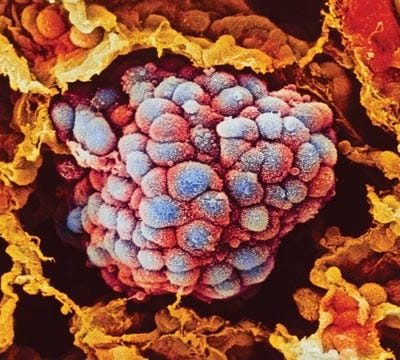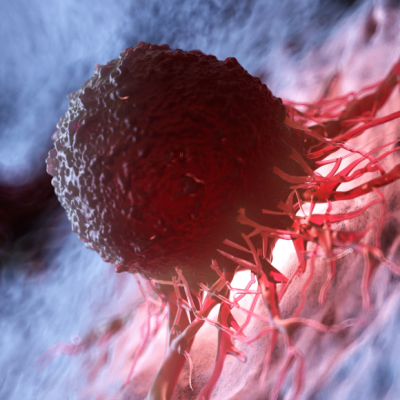Chromothripsis, or chromosome explosions, have been found in 49% of all cancer cases. These tumors are more aggressive than those caused by slow mutations and DNA damage, making prognosis for patients poor. While it was previously believed that cancer developed slowly through mutations and DNA damage, it has been known for some time that a process similar to an explosion can cause one or more chromosomes to break down in a short amount of time. This leads to thousands of DNA strand breaks, causing entire gene segments to detach. The resulting damage overwhelms the DNA repair mechanisms of the cells, causing the destroyed chromosomes to be incompletely or incorrectly assembled. This often activates potent cancer genes, leading to an aggressive tumor behavior and poor prognosis for cancer patients.
Previously, it was estimated that chromothripsis only caused 2-3% of all tumors. However, a study conducted by scientists at the German Cancer Research Center (DKFZ) found that chromothripsis is present in 49% of all cancer cases. The study analyzed the genetic material of 634 tumor samples from 28 types of cancer, and found that there was no pattern for certain chromosomes or chromosome parts that were particularly susceptible to explosive decay. However, it was shown that sometimes only one chromosome, but often a series of chromosomes, were affected. The frequency of chromothripsis varied greatly depending on the type of cancer, with breast and liver cancer having the highest incidence at around 80%, while stomach cancer, salivary gland tumors, and ovarian tumors had a much lower incidence.
The study also found that tumors caused by chromothripsis are much more aggressive than those caused by slow mutations and DNA damage, due to the frequent formation of metastases. This makes prognosis for patients much worse, as survival rates are significantly reduced. However, the new findings can help in the treatment of cancer by allowing for more targeted therapies based on the known genetic changes.










